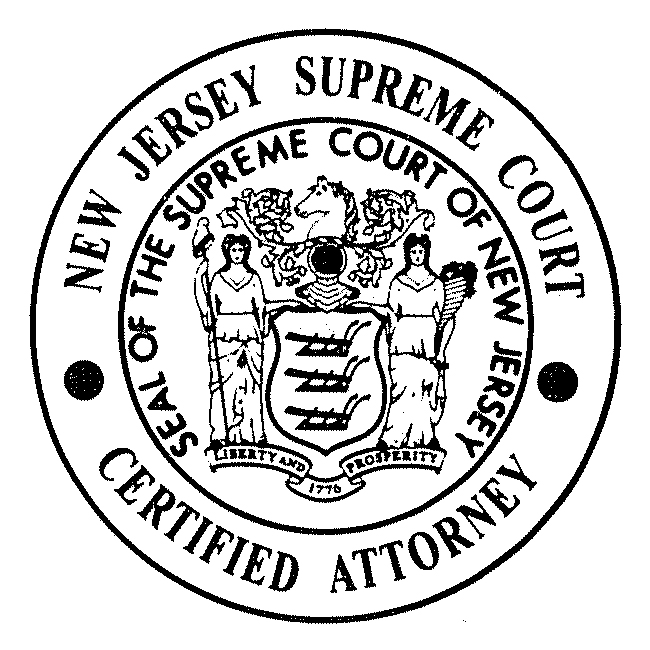New Jersey Divorce Lawyers
Compassionate Attorneys Guide Clients Through the Difficult Process of Divorce in New Jersey
In many marriages, there comes a point where the spouses recognize that their relationship is coming to an end and that they need to pursue a divorce. A divorce can be a difficult, traumatic experience for any person, especially if you have had a long marriage where you and your spouse have built a family and a life together. However, the divorce process requires resolving important issues that impact your rights and interests. That is why you need a knowledgeable and experienced legal advocate who can provide you with compassionate advice and guidance through the divorce process. Our New Jersey divorce lawyers will work hard to protect your rights and interests.
Going Through A Divorce And Have Questions? We Can Help, Tell Us About Your Case.
For more than 60 years, the family law attorneys at Team Law have worked diligently to help our clients. If you are considering divorce or are already in divorce proceedings, don’t leave your future to chance. Contact Team Law today to speak to a New Jersey divorce lawyer about your legal rights and options and to learn more about how our firm can help you.
The Divorce Process in New Jersey
The divorce process in New Jersey can become long and complicated, especially if it becomes necessary to go to trial to resolve any issues in your divorce. If you are considering seeking a divorce, you should familiarize yourself with the following steps in obtaining a divorce in New Jersey:
- Filing of a divorce complaint: The divorce process begins when one spouse files a complaint for divorce with the court. The complaint must either state a grounds for fault for the divorce, or state that it is a no-fault divorce. If you are seeking a no-fault divorce on grounds of separation, you must establish that you and your spouse have lived separately for at least 18 consecutive months; if you are seeking divorce on grounds of irreconcilable difference, you must establish that your marriage has been irretrievably broken down for at least six months. The complaint should also set forth the legal issues that the spouse wants resolved by the court, such as equitable distribution, alimony, or child custody/support.
- Appearance and answer: The other spouse will have an opportunity to file an answer to the complaint, in which the other spouse may contest allegations in the complaint, or raise counterclaims for other legal issues to be resolved that were not identified in the complaint.
- Filing of the case information statements: Both spouses will also file a case information statement, which sets forth each spouse’s financial information relevant to issues in the divorce, such as alimony, child support, and equitable distribution
- Settlement conferences and mediation: The parties will typically be required to engage in settlement conferences and mediation to try and resolve the legal issues in the divorce without needing a ruling from the court. These conferences begin with informal settlement negotiations, escalating into mediation and then into intensive settlement conferences as the parties approach trial.
- Trial: If there are still outstanding issues, the court will hold a trial and decide those issues for the parties, incorporating those rulings and any agreements reached by the parties into a final judgment of divorce
Dedicated Divorce Lawyers at Team Law Fight to Protect Your Rights and Interests
At Team Law, we recognize that getting divorce is often an emotionally-charged process for the spouses involved. You may be experiencing feelings of sorrow, grief, or regret over the breakup of your marriage, while also concerned about how your divorce will affect your family, especially if you and your spouse have children together.
It can be very easy to lose sight of protecting your rights and interests in resolving economic and personal issues in divorce, such as equitable distribution or alimony. That is why our New Jersey divorce attorneys stand ready to look out for your rights and your future during your divorce proceedings, so that you can focus on taking care of yourself and your loved ones during this difficult process.
Get Advice From An Experienced New Jersey Family Law Attorney. All You Have To Do Is Call 1-800-TEAM-LAW To Receive Your Confidential Case Evaluation.
When you choose Team Law to represent you in your divorce, you can expect that we will take the time to get to know you and understand your concerns, goals, and needs, so that we can develop a legal strategy to help get you the outcome you want and deserve. And you can expect that we will handle your case with the compassion and care that you need at this difficult time.
Contact Team Law Today to Set Up a Case Evaluation with One of Our Knowledgeable New Jersey Divorce Attorneys

If you are considering getting a divorce or you have already served divorce papers or been served divorce papers, you need to talk to a knowledgeable New Jersey divorce attorney about the divorce process and learn more about your legal rights and options in divorce. Schedule a confidential consultation with a New Jersey divorce lawyer from Team Law today to discuss your case and learn more about how our firm can help protect your rights and interests and get you the best possible outcome for you in your divorce.
Frequently Asked Questions about Divorce in New Jersey
New Jersey law recognizes “no-fault” divorces, in which one or both spouses allege that “irreconcilable differences” have caused an “irretrievable breakdown of the marriage”, such that after at least six months of separation there is no longer a reasonable prospect of reconciliation and the marriage should be dissolved. It is also possible to seek divorce in New Jersey on grounds of fault such as adultery, willful desertion, drug or alcohol addiction, extreme cruelty, imprisonment of one spouse, or deviant sexual conduct; however, you will need to either have your spouse admit to fault or prove grounds for fault at trial.
An “uncontested” divorce is one in which the spouses have reached an agreement prior to the divorce as to all the legal issues in their divorce, such as alimony, equitable distribution, or child custody/support. All other divorces are considered “contested” divorces, with most divorces falling into the contested category since couples often find once filing divorce that there are still outstanding legal issues that need to be resolved. Regardless of whether your divorce is uncontested or contested, you need an experienced divorce attorney to make sure no issues between you and your spouse are overlooked.

Team Law is outstanding. Everyone is courteous and knowledgeable and I felt that I got the personal attention that I needed.
what our clients are saying CALL NOW
CALL NOW 




